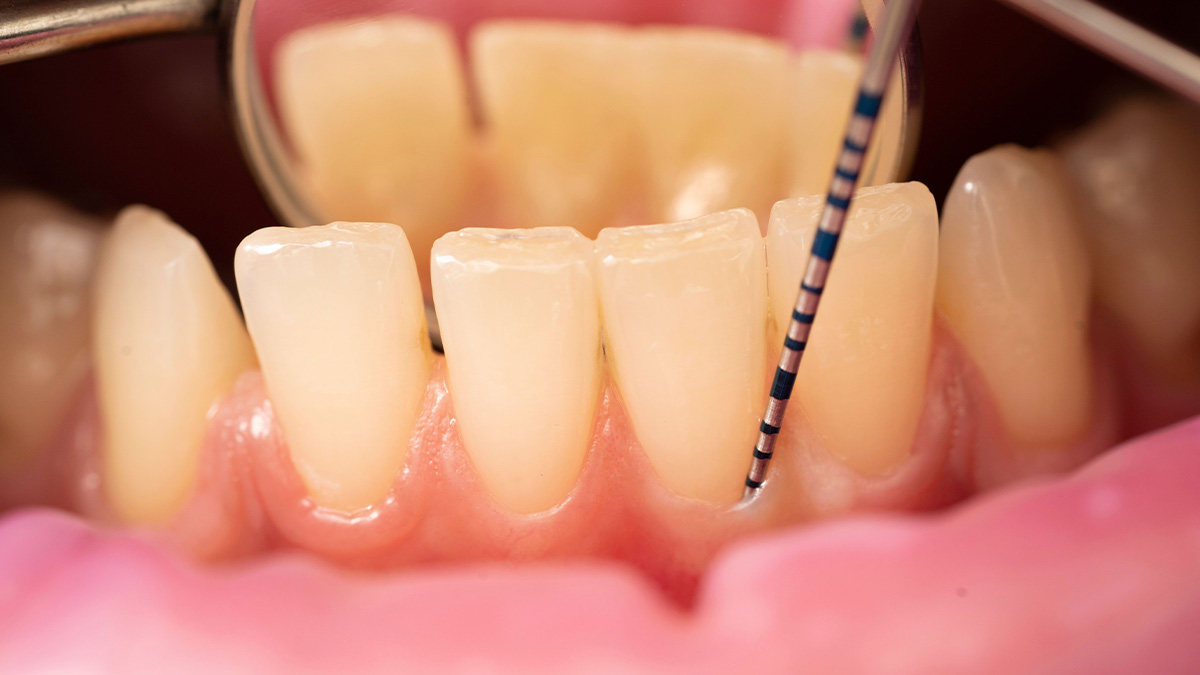Treatment of periodontitis
Treating periodontal disease is crucial for maintaining the health of your teeth and gums. This gum disease can cause serious problems if not treated in a timely manner, including tooth loss and general health complications. Our clinic uses the latest methods and technologies to help you effectively manage and treat periodontal diseases.
What is Periodontal Disease?
Periodontal disease, or periodontitis, is a serious condition that affects the gums and supporting structures of the teeth. It is caused by the accumulation of bacterial plaque and can lead to inflammation, infection, and even tooth loss. Identifying and treating it in the early stages is crucial to preventing the progression of the disease.
Symptoms and Early Signs of Periodontitis
Symptoms of periodontal disease may include bleeding when brushing your teeth, redness and swelling of the gums, and pain when chewing. Persistent bad breath that cannot be eliminated with regular brushing can also be a sign of periodontitis. If you notice any of these symptoms, it is important to see a dentist as soon as possible.
Methods of Treating Periodontal Disease
Non-Surgical Treatment Methods
Non-surgical treatment methods, such as scaling and root planing, remove tartar and bacterial plaque from below the gum line. These techniques are often the first step in treating periodontitis and can significantly reduce inflammation and halt further tissue decay.
Surgical Treatment Methods
In more advanced cases of periodontitis, when non-surgical methods are not sufficient, surgical procedures may be necessary. Surgery can include tissue regeneration or gum grafting to restore the supporting structure of the teeth and improve the aesthetics of the smile.
Recovery After Periodontal Treatment
Recovery after periodontal treatment varies depending on the type and extent of the procedure, but proper care and collaboration with the dental team are essential for a swift and successful recovery. Patients can expect some discomfort, swelling, and bleeding following invasive procedures, which can usually be managed with prescribed painkillers and cold compresses. It is important to avoid irritating the treated area, which includes gentle brushing and avoiding hard foods for the first few weeks. Regular follow-up visits are crucial for monitoring recovery and adjusting postoperative care, as well as ensuring there are no signs of infection or other complications. Patients should also follow individualized oral hygiene instructions to support healing and prevent the recurrence of periodontal problems.
Prevention of Periodontal Disease
Preventing periodontal disease is based on regular oral hygiene maintenance, including proper tooth brushing and flossing. It is also important to visit the dentist regularly for professional cleaning and check-ups, which can help in early diagnosis and prevention of periodontitis.
Contact Us for More Information
If you have symptoms of periodontal disease or want to learn more about prevention and treatments, do not hesitate to contact our clinic. Our team of experts is here to provide you with all the necessary information and help you maintain the health of your gums and teeth.


